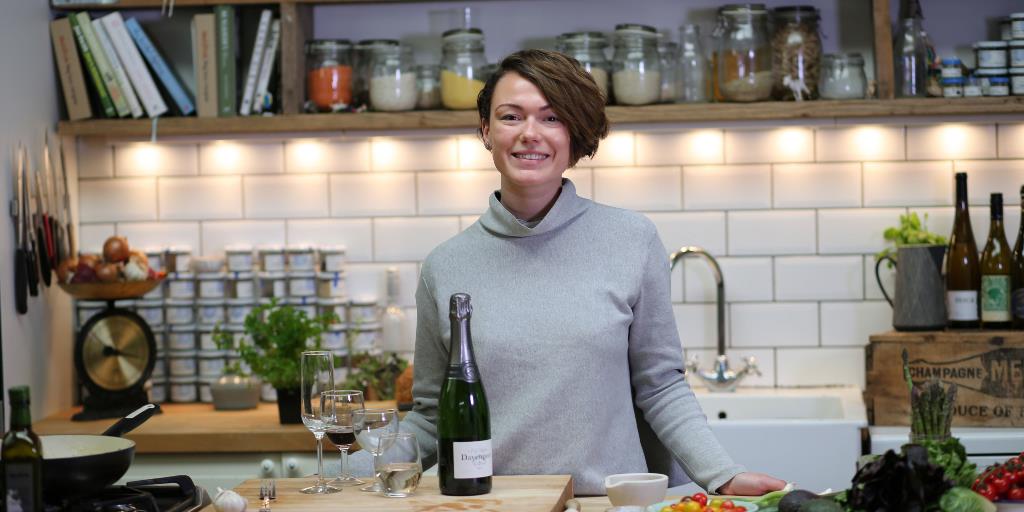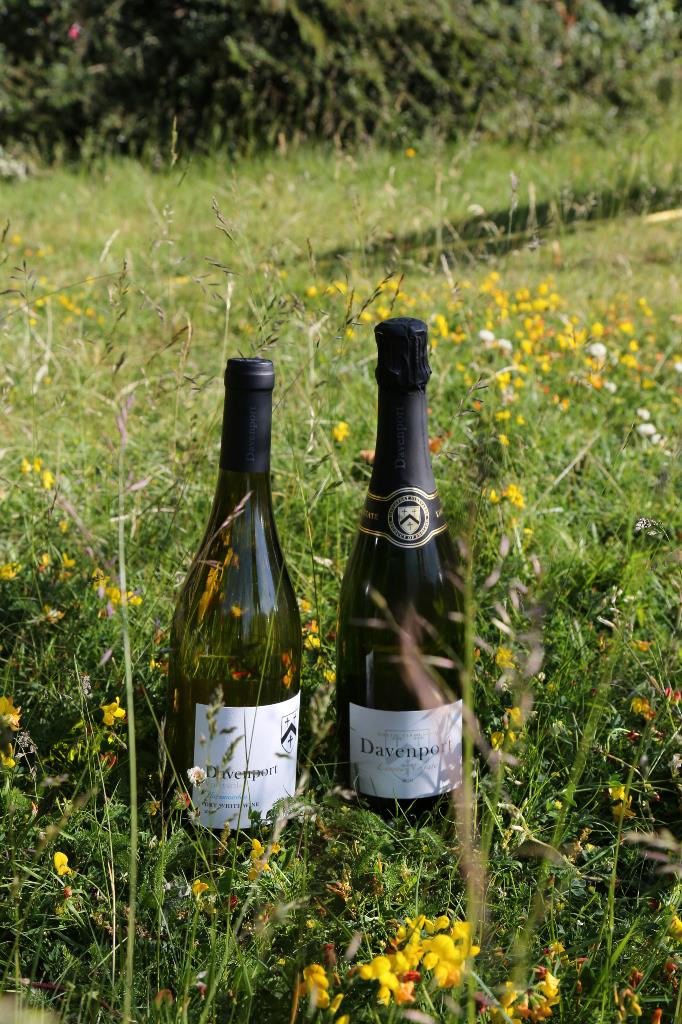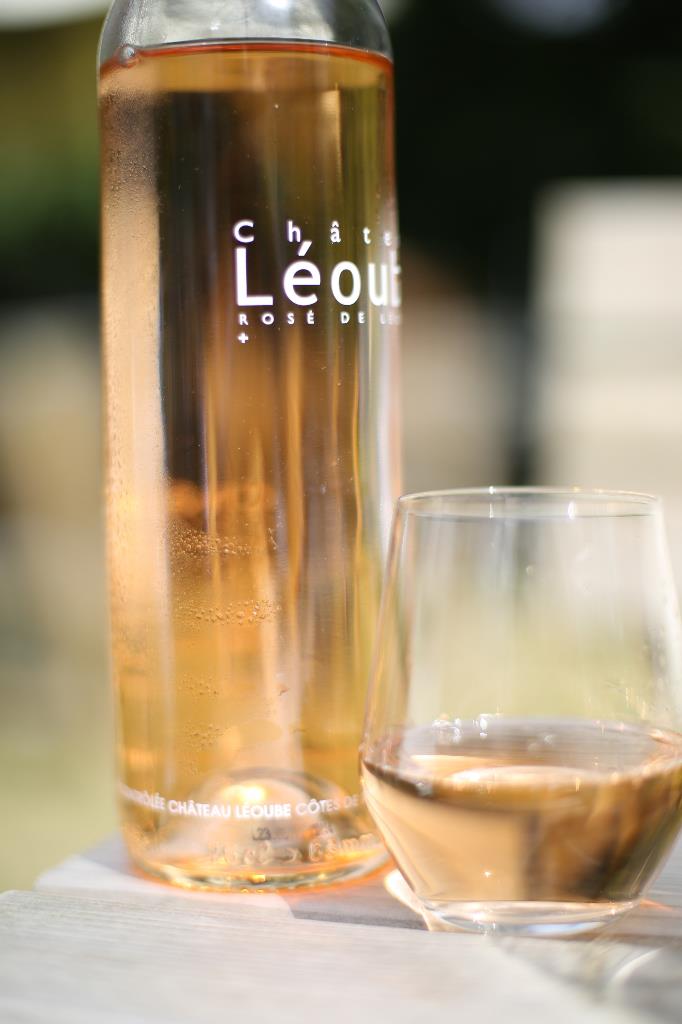From ‘Organic wine’ to ‘Natural Wine’, ‘wine without sulphates’ to ‘Biodynamic Wine’– what does it all mean? We sit down with our resident wine guru, Honey Spencer, for a glass (or two) as she tells us what’s what in world of wine. She also gives us her best organic wine recommendations in our wine of the month club.
Our guru’s guide to organic wine

The short answer is no. The official stance from the EU is that a wine can be defined as ‘Organic’ when it is produced according to the Regulation of the European Commission. It states that the grapes must come from organically-farmed vineyards (naturally), and once in the cellar these grapes must be processed organically, also. In a nutshell: organic ingredients, organic process, from vine to bottle. This certification is a relatively new thing. Since 2012, there’s a law which provides parameters for winemakers such as maximum sulphite content and the prohibitation of sorbic acid and desulfurisation.
An organic red wine (and a bottle of organic white wine) that you might be unfamiliar with…
 Biodynamic Wine
Biodynamic Wine
(tell us more, tell us more)
Biodynamics takes the concept of organic agriculture and drives it forward in more holistic ways. While organic farming bans the use of synthetic products, biodynamics goes further by prescribing the use of eight ‘preparations’ to enhance the life of the soil and protect against vine diseases.
The movement was introduced in a series of lectures by Austrian Scientist and Philosopher Rudolph Steiner in 1924, which outlined ways in which to bring together scientific farming methods and the ‘spirit of nature’. For example, the application of homeopathic teas made of herbs found in the vineyard to heal sick vines (think stinging nettles and dock leaves) or aloe vera treatments to appease grapes grown in particularly hot vineyards.
Also, the biodynamic approach to viticulture is highly useful in regions where simply abstaining from using chemicals is not always the best solution for the vines. It is also safe to say that this use of nature to sustain vine health is immeasurably better than chemical alternatives, both for the vineyards and their ecosystems and us humans, too.
 Can you taste the difference between Organic Wine and Biodynamic Wine?
Can you taste the difference between Organic Wine and Biodynamic Wine?
Scientifically speaking, no you can’t. It would be pretty hard to prove that there are consistent variances in tastes between a product that is farmed organically and one that is farmed biodynamically. However, of all the thousands of wines I have personally tasted (many without knowing were biodynamic beforehand), I have noted a greater sense of harmony and an enhanced vitality in the wines overall. I’ll explore this (and Biodynamic Wine) a bit more in a new blog post, ‘Biodynamics - just hippy nonsense?’ very soon which will cover the many ways winegrowers and makers implement biodynamics both in the vineyard and in the cellar.
Two of our our favourite biodynamic wines: La Raia Gavi 2016 and Old School Rouge 2016
What about Natural Wine?
There’s been a lot of buzz about the term ‘Natural’ Wine in the past five years. Some good buzzings and a lot of not good buzzings. The primary complication arises from a lack of definition or laws on what a natural wine actually is.
Tenacious Natural Wine advocates have long been pushing for this to change and for the appropriate certifying bodies to agree on a set of parameters that define Natural Wines for producers and consumers. Having worked with natural wines myself for the last five years, the agreed interpretation seems to be that it’s a organically or biodynamically farmed grapes and processed as little as possible before going into bottle. This excludes the use of non-indigenous yeasts (i.e yeast strains not naturally found in the surrounding vineyards or winery itself), filtering or fining of any kind and minimal additions of sulphur dioxide (SO2). Truly ‘natural’ wines can taste very wild indeed and almost as far as you can get from your average wines.
As with all wine, there are some good natural wines and some bad natural wines, however with increasing experience and support of winemakers that choose to make wine without the safety net of chemistry, the quality of many of these wines seem to be getting better and better.
Tell us about sulphites
Ah, the dreaded topic of sulphites in wine. All wine contains sulphites. Sulphites are a natural byproduct of fermentation so it is simply impossible to have wine without sulphites. However, winemakers can choose to add extra sulphites (SO2) to a wine. According to most organic certifiers, the maximum amount of total SO2 in a wine must be 50 mg per litre less than wines made conventionally*.
There are many reasons they might opt for adding SO2 to their wine. Firstly, SO2 works as an antioxidant, protecting wine from spoilage from oxygen. It is also a stabiliser and many winemakers that ship their wine, domestically and internationally, may add SO2 for peace of mind that the wine will be in the same condition as when it left the winery. The greyer areas are what happens to the chemical construct of wine when synthetic sulphites are mixed with alcohol in terms of health concerns but so far there is limited research on the subject. There is also the question of style. As with natural wine, wines made without the addition of SO2 taste very different to those made with SO2, which means an open mind is required when drinking them!
*According to the EU the maximum amount of total sulphites permitted in organic wine is 100mg per litre for red wine and 150mg per litre for rosés and whites versus 150mg/l and 200mg/l in conventional wines.
I want a wine with no added S02!
Any other jargon that
we should know about?
Yep, ‘Lutte Raisonnée’. This is a term that has been floating around for a while and essentially means that farmers will do their best not to spray their vines (with pesticides, insecticides, fungicides, etc) but will resort to it if they feel they have to. Again, here we have no real legal parameters but one could conclude that wines that are ‘Lutte Raisonnée’ are a step better than wines that are consistently processed with chemicals, however it does require a level of blind trust from those who drink them. Note: all wines available through Abel & Cole are certified organic, none are ‘Lutte Raisonnée’
And there you have it, an introduction to the organic wine world. Honey selects her three favourite wine of the month to go into our Monthly Wine Club. The bottles arrive with flavour pairings and notes from Honey about the regions and how they’re made. A must-have for any fledgling (or indeed discerning) organic wine connoisseur.
Take me to the whole organic wine cellar
Honey's sources:
https://ec.europa.eu/agriculture/organic/eu-policy/eu-rules-on-production/wine_en
www.rawwine.com/the-wine/what-is-natural-wine/


